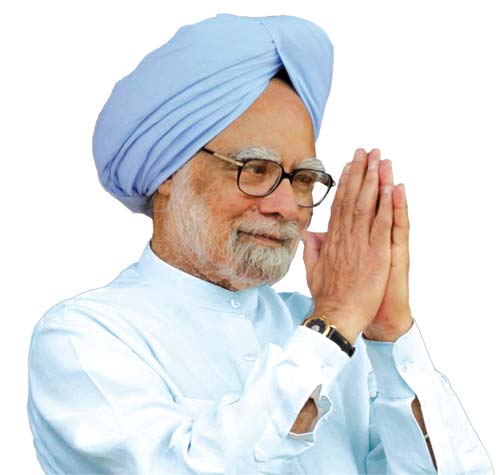After his path-breaking initiative at the LoC, Dr Manmohan Singh talked-a-bit with Kashmiri peaceniks and eventually created a round-table to help the moribund Vale. Then came 2010 and the arrival of interlocutors. Now the Prime Minister is flying to Srinagar again amid demands for return of Afzal’s mortal remains. Shah Abbas analyses the unmaking of Delhi’s initiatives on Kashmir.

After organizing three round table conferences on Kashmir, forming the five working groups, flagging off ‘Karvan-e-Aman’ and starting cross LoC barter trade, putting forward the much talked reconstruction programme, meeting moderate separatist leaders and finally selecting three interlocutors, Prime Minister Dr Manmohan Singh is again visiting Srinagar to inaugurate a couple of mega projects.
This probably will be his last visit to trouble-torn valley as Prime Minister before next year’s Lok Sabha elections decide his party’s fate. This will also be Dr Singh’s first Kashmir visit after the hanging and burial of Afzal Guru in Tihar Jail Delhi, and 2010 civilian killings.
“Dr Manmohan Singh like all other Indian prime ministers has miserably failed to win the hearts of Kashmiris, he could not address the Kashmir issue politically, he failed to maintain his zero tolerance promise against human rights violations even he could not punish the men in uniform involved in the civilian killings during 2008 and 2010,” Awami Ittehad Party (AIP) president Er Rashid told Kashmir Life adding, “now Dr Manmohan Singh is visiting Srinagar again, what can be in his kitty for Kashmir this time, I suggest prime minister should come with the mortal remains of Afzal Guru so that Kashmiris can have any reason to trust him.”
Jammu Kashmir Liberation Front (JKLF) Chairman, Mohammad Yasin Malik, Hurriyat (G) Chairman, Syed Ali Geelani and Hurriyat (M) rebel, Shabir Shah have called for a complete shutdown on the day PM visits Kashmir. “I want to ask the Prime Minister of India what progress he has shown in peace process during his last eight years of tenure. Now what can he do in his last nine months?” questioned Malik.
“Kashmiris showed a transition from violent to non-violent movement, India did not show any flexibility on Kashmir,” added Malik. Instead, he said, India killed innocent Kashmiris, booked 32 political workers for life and hanged Afzal Guru secretly against its own constitutional framework.
Geelani reminds the PM of “unfulfilled promise” of New Delhi of providing right to self-determination to Kashmiris.
“The shutdown is against the denial of inalienable right of self-determination to Kashmiris, snatching of political space for separatists, suppression of the aspirations of Kashmiris by military might and to press for return of mortal remains of Muhammad Maqbool Bhat and Muhammad Afzal Guru,” Geelani said.
The Prime Minister during his visit to J&K on November 17, and 18, 2004, announced a Reconstruction Plan for the state involving an outlay of Rs.24000 crore. There were 67 Projects/Schemes broadly aimed at expanding economic infrastructure, expanding provision of basic services, providing boost to employment and income generation and providing relief & rehabilitation to the dislocated and the families of victims of militancy. It was claimed the Reconstruction Plan would strengthen the economic and social infrastructure and provide balanced development of the state.
The experts who maintain a close vigil on Kashmir affairs had criticized the PMRP saying that it was an “economic prescription” for a “political illness”.
Dr Manmohan Singh, 81, is the 13th Prime Minister of India. A reputed economist, he is the only Prime Minister since Jawaharlal Nehru to return to power after completing a full five-year term, and the first Sikh to hold the office.
Born in Gah (now in Punjab, Pakistan), Singh’s family migrated to India during its partition in 1947. After obtaining his doctorate in economics from Oxford, Singh worked for the United Nations in 1966–69. He subsequently began his bureaucratic career as an advisor in the Ministry of Foreign Trade. Over the 70s and 80s, Singh held several key posts in the Government of India.















